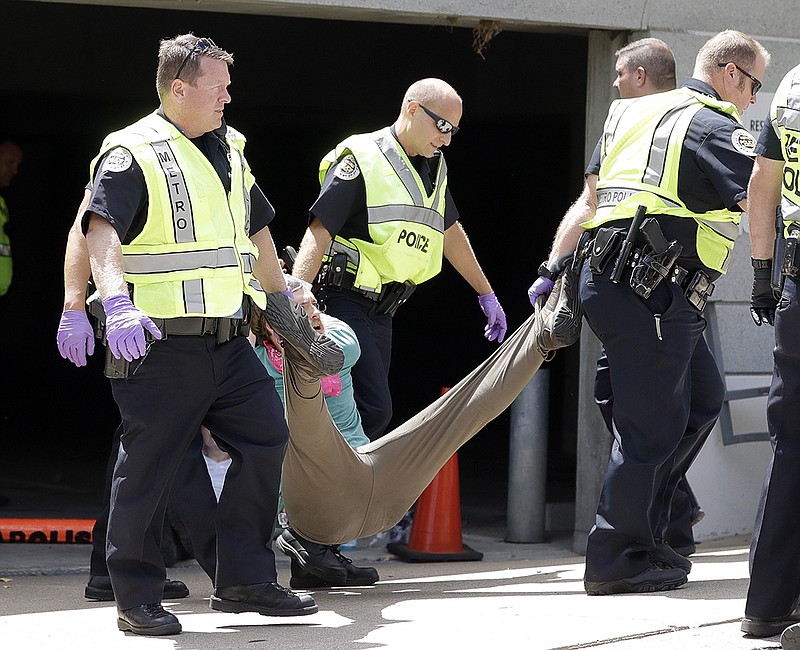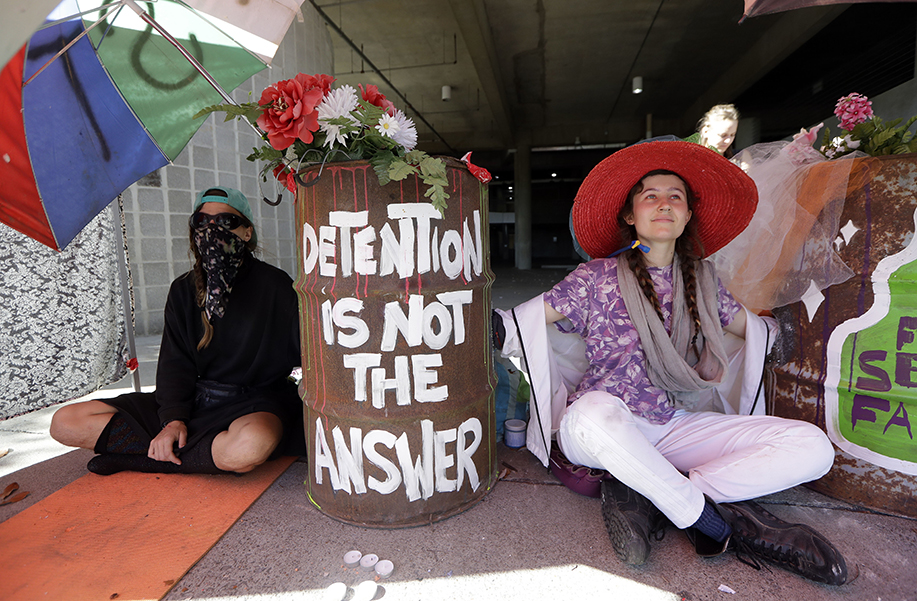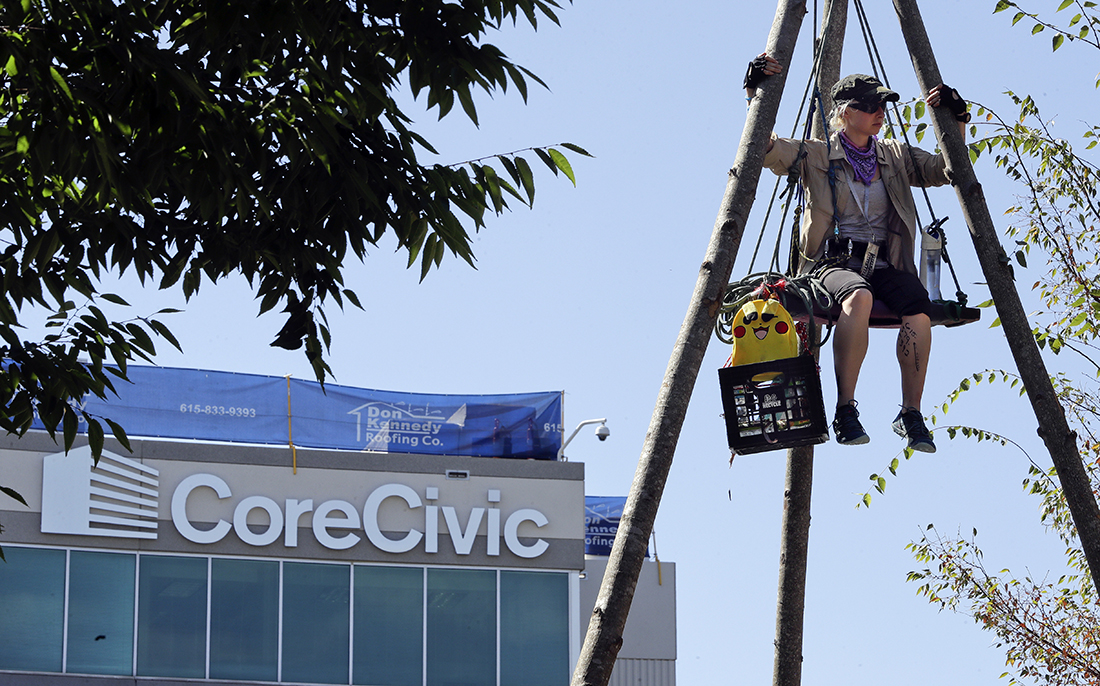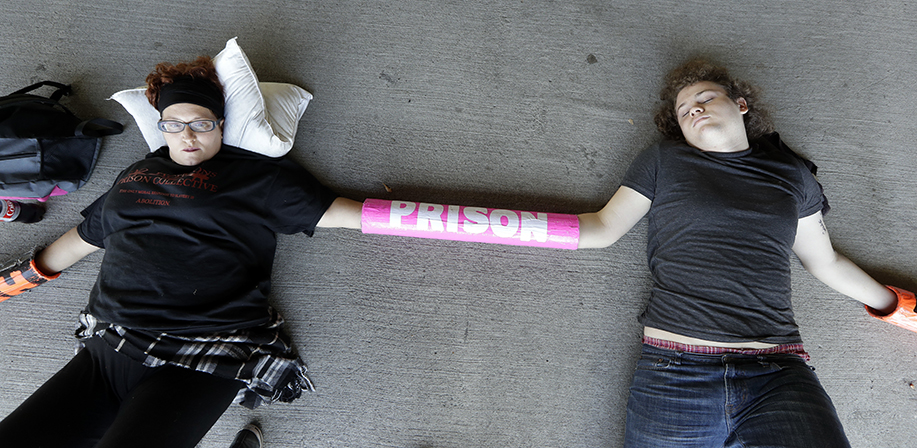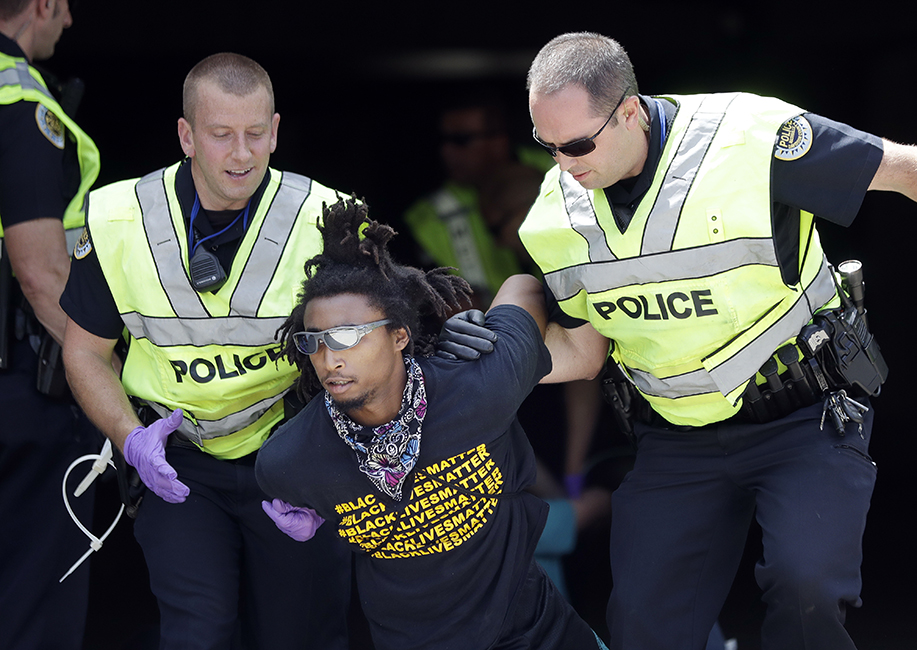NASHVILLE, Tenn. (AP) - Nashville Police on Monday said they arrested 19 of the several dozen demonstrators who blocked entrances to the Tennessee headquarters of private prison operator CoreCivic.
Demonstrators linked their arms through barrels weighed down with cement and pipes, and one was seated on a swing-like perch about 25 feet up in the air, suspended from a large tripod made with logs. The protest mainly focused on immigration, since the Tennessee-based company also runs eight detention centers for U.S. Immigration and Customs Enforcement. The company says none of its facilities house children who aren't under the supervision of a parent.
The No Exceptions Prison Collective wants all those ICE-contracted facilities closed.
The Rev. Jeannie Alexander said they arrived about 5 a.m. Monday, setting up tents and replacing company flags with their own flag, which says "No Borders." Dozens of officers responded in cars and vans, on bicycles and in mobile command center-style vehicles. They began making arrests in the late morning and early afternoon.
Alexander went limp as officers carried her into a police van.
A CoreCivic statement says activists are distorting the company's role in immigration detention with "wrong and politically motivated" information shared by special interest groups.
Ashley Dixon wore her uniform from when she worked as a correctional officer at CoreCivic's Trousdale Turner Correctional Center. In addition to opposing the company's contracts with federal immigration officials, Dixon has said she witnessed two deaths in her seven months at Trousdale: a 25-year-old diabetic inmate Jonathan Salada, who was in pain for days and sometimes wasn't getting his shots, despite Dixon's pleas to nurses; and Jeff Mihm, who swallowed 100 blood pressure pills, but wasn't given charcoal to make him throw them up.
She testified similarly in a late 2017 state legislative committee meeting about Salada and Mihm. They were among the names on faux gravestones at Monday's protest and federal lawsuits are ongoing over their deaths.
"I constantly saw people just not getting medications that were really important for their well-being and their health," Dixon said.
Gilchrist said that CoreCivic used an independent investigator to look into Dixon's claims. Other than noticing staffing problems that the company has publicly acknowledged at Trousdale, Gilchrist said the investigator "was generally unable to find sufficient evidence to validate Ms. Dixon's other allegations."
Tennessee Department of Correction spokeswoman Neysa Taylor added that Dixon's claims were "refuted and discredited" during subsequent legislative hearings.
"It's clear that this group would rather use divisive rhetoric and falsehoods than engage in a fact-based discussion about the many challenges facing our country that we work every day to address," CoreCivic spokeswoman Amanda Gilchrist said of the protests.
